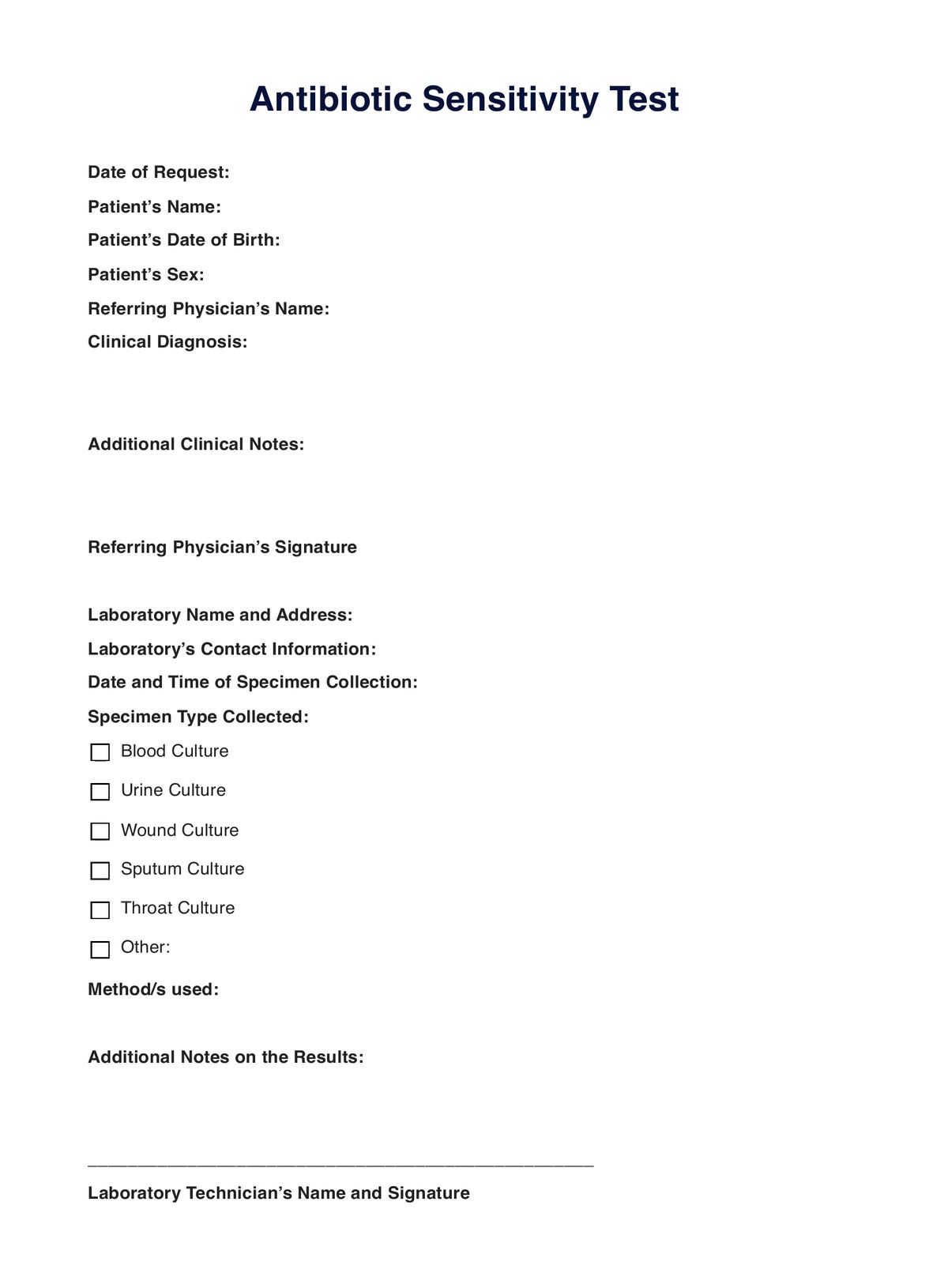Healthcare practitioners who usually request are physicians, physician assistants, and nurse practitioners formulating or caring for a patient with an illness that needs antibiotics.

Antibiotic Sensitivity
Understand more about the antibiotic sensitivity test and get a free request form template by clicking here.
Use Template
Antibiotic Sensitivity Template
Commonly asked questions
Antibiotic sensitivity tests are requested when the patient has a hard-to-treat or antibiotic-resistant illness or their condition isn??t improving even after standard treatment.
Collection of the sample can take a few minutes. However, the analysis and the interpretation may take a while, depending on the number of samples that must be analyzed and the speed of the practitioners in charge.
EHR and practice management software
Get started for free
*No credit card required
Free
$0/usd
Unlimited clients
Telehealth
1GB of storage
Client portal text
Automated billing and online payments











